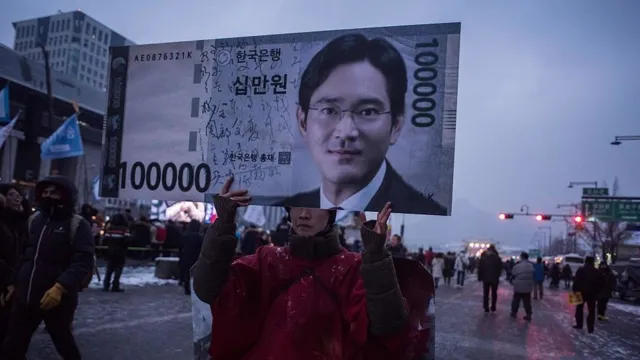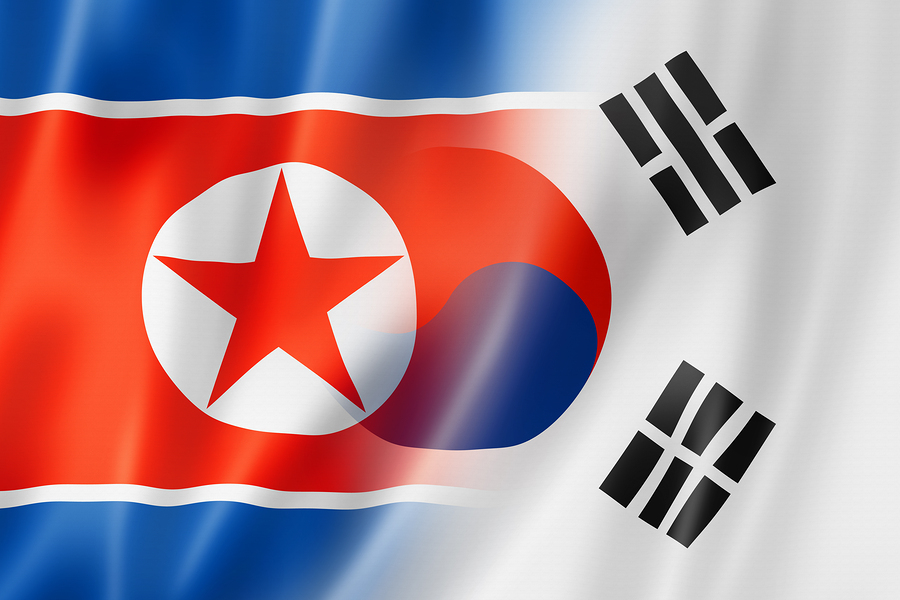By Mariam Karagianni,
When writing this article, the first term that came to mind was “techno-feudalism.” This concept was developed by former Greek minister of Economics Yanis Varoufakis. He argues that capitalism is no longer driven by markets and competition, as it has evolved into techno-feudalism—where big tech and monopolies act as digital landlords, controlling the economy. In this system, governments are either powerless or actively helping big tech in expanding. Considering South Korea, it’s easy to see why this term applies. There is a notion in the country that if Samsung does well, so will Korea. The peninsula is described as the ”Republic of Samsung”, as it is the most powerful chaebol. But, of course, any conglomerate with a net worth approaching 300 billion dollars is not built on morals or legality, as we’ll see next.
Hwang Yumi started working at Samsung Electronics making computer chips, hoping to save money for a future wedding and help her brother through college. For the 18-year-old girl, the job seemed like a great opportunity. But it also required prolonged exposure to harsh and toxic chemicals while dipping silicon wafers. After three years, she was diagnosed with Acute Myeloid Leukemia. Hwang Sang-Ki, her father, watched his daughter take her final breath in the spring of 2007. After her death, he applied for worker’s compensation, but he was informed by the company that he would receiving nothing. After being informed of the conditions under which Yumi had worked, he told her former manager that he would sue. Even then, he was discouraged—the manager told him no one could win a case against Samsung. It wasn’t just that Samsung was a massive chaebol—it was also backed by the South Korean government.
Could anyone win against that whale? Sang-Ki protested outside of Samsung’s headquarters for weeks. In 2010, however, SHARPS (Supporters for Health and Right of People in the Semiconductor Industry) appealed Yumi’s denial in court. Someone had leaked an internal document of Samsung listing the chemicals used at her worksite. Following a specialist’s testimony regarding their toxicity, the decision was overturned. Finally, in 2018—almost a decade later—Samsung Group issued an apology to her father. But Yumi wasn’t the only one: there were 320 victims in total, unreported by the media. A total of 11.6 million dollars was paid out, with each family receiving only a few thousand. That same year, the group had a total revenue of 54 billion dollars. Notably, Samsung stated that it does not acknowledge any claims linking its production process to illnesses as legitimate.

To understand chaebols—especially Samsung’s influence—the political theater of South Korea is a good starting point. One of the greatest legal protections they enjoy is the so called ”3–5 rule” within the judicial system. It refers to a three-year prison sentence reduced to a five-year suspension if no further offenses occur, regardless of the crime’s severity. The numbers aren’t always consistent; some don’t serve even a single year. A key example is Lee Jae-Yong, also known as the ”Crown Prince of Samsung.”
In 2012, South Korea elected its first female president, Park Geun-Hye. Her father, Park Chung-Hee—discussed earlier—was the architect of the chaebol system. There was a widespread worry that she would follow in his footsteps, despite promising otherwise. In 2016, it was revealed that Park not only aided the chaebols but she found herself amidst a full-blown scandal. Quite not surprisingly, she was charged with accepting massive bribes in exchange for governmental favors. In fact, Samsung paid 36 million dollars to a nonprofit run by Park’s close friend, who held no official position. The reward was Park giving the green light to a highly controversial merger that Lee had been pursuing.
The reason why he approached the president was because the biggest shareholder of Samsung’s division he wanted to undervalue was NPS (the National Pension Service), a government-run entity. For that, Park was impeached and sentenced to 24 years in prison, while Lee received a five-year sentence. It goes without saying that Park was pardoned after just four years, while Lee was released in about one. The president said that, while condemning Lee was the right thing to do, the nation needed him—the economy depended on him, after all. In other words, Lee Jae-Yong stands above the law.
The influence of Samsung goes way beyond smartphones and tech. It is an enormous infrastructure that infiltrates every part of an average South Korean’s life. It funds universities and hospitals, issues life insurances, is responsible for transportation, and even the creation of an amusement park. The very education system pushes the narrative of getting young people to work for chaebols once they’ve graduated, as it is considered the apex of success. Criticism of such establishments is often muted, and the media cannot survive without advertisements. And with Samsung being their biggest client, they effectively write what Samsung wants them to. Those who attempt to dig deeper are blacklisted and face lawsuits. “It is easier to talk about North Korea than Samsung,” some even claim.
We are conditioned to see the South as the “free” Korea. In comparison to the Orwellian horrors of the North, it is. Yet, the freedom in question remains a matter of angle. The Kim dynasty rules by a hereditary right. In the South, power is passed down through chaebols and their exclusivity of power within the family. In the North, people’s loyalty is indoctrinated from birth. In the South, loyalty is achieved through subtle marketing and economic dependency. In one, we have military uniforms; in the other, expensive designer suits. I’d say that both represent the two sides of the same coin; freedom is more aesthetic in the South but nevertheless not much more substantive. Because one fears their government, while the other drowns in corporatocracy. And so, it’s not ridiculous to state that while the North and the South have substantially different masters, they share the same chains of restriction.

The ”Miracle on the Han River” is not a lie—but its success feels incomplete. Beneath those global exports and dazzling celebrities lies a nation that has leased itself to a few conglomerates. In the name of miracles, democracy, autonomy, and labor rights, and often life itself have been traded away. This is not to deny South Korea’s achievements or to romanticize the North, but to highlight the quiet normalization of corporate monarchy. Perhaps freedom should be revised. Is it simply the ability to vote, or to question those who govern us—unrestricted? Is democracy the equal application of justice, or a system in which certain families remain unscathed by law because of who they are?
Yes, chaebols built Korea. But they also built its cage. And until the country finds a way to survive without them, it will never be truly free.
Reference
- The Untouchable Chaebols of South Korea | Open Secrets. VICE Asia. Available here




